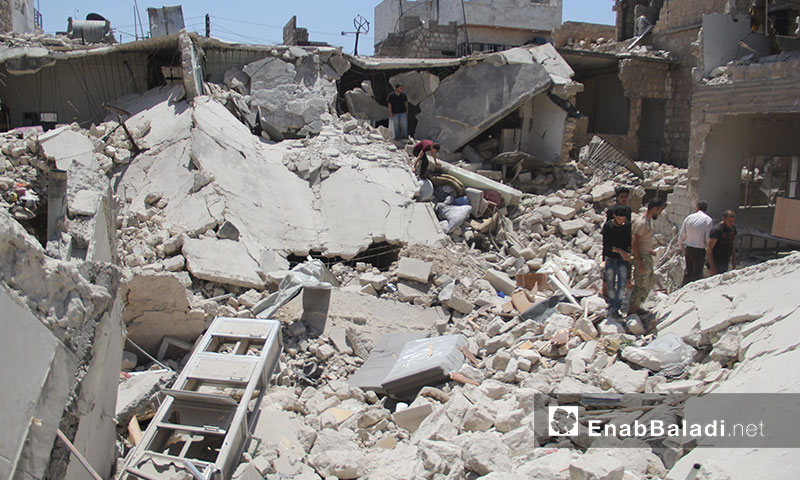The city of Maarat al-Numan in Idlib province was the victim of fierce wave of bombardment carried out by Russian and Syrian warplanes during a seven-month offensive that ended with a ceasefire agreement declared at the end of August 2019. The city was struck by hundreds of shells and rockets killing dozens of civilians and displacing thousands from the city.
Despite the ceasefire violations every now and then, and sporadic bombardment of the city, residents have attempted to return to their city only to be faced with extreme poverty. The situation was exacerbated by humanitarian organizations cutting support to the utilities and education sectors, according to the head of the city local council Bilal Zekra.
Lack of security and stability
The organizations invoked insecurity and instability as the reason for their abrupt suspension of funding to projects and utilities sectors in the city, thus “ignoring the large number of people living there,” according to Zekra.
Maarat al-Numan has a population of 90,000 augmented by 17,500 internally displaced people (IDPs), according to a recent statistic posted by the city’s local council on their Facebook page. The council stated that the reduction of food assistance allocated to the people of the city “would get the local community into a bind over the deprivation of part of the (vulnerable) groups.”
Zekra added that the local council continues to deliver education, health and relief services to the extent possible. This is made even more complicated due to the rising oil prices. This has resulted in a reduction in basic services such as electricity and water. Water tanks are sold at a cost of 2200 Syrian Pounds (SYP – 4.27 USD) while bread is sold at market price.
High living costs
Bahr Nahas, a civic activist, told Enab Baladi, that the high cost of living is the biggest challenge for the people of Maarat al-Numan. He indicated that the average family spends 12,000 SYP (23 USD) on electricity and water per month. According to Lama Saud, a resident, electricity is available only four hours a day, from 6pm to 11pm. “Electricity was previously available for an hour in the day and lasted at night from 6pm to 12pm,” Saud said. The water supply was also badly affected as residents do not have access to water as regularly as before.
According to Nahas the funding cuts to schools—except for two schools supported by Syria Relief—is another one of the challenges facing people. He added that teachers work at schools on a voluntary basis.
Lama Saud, herself a student in the Faculty of Education at the Free Aleppo University, said that the funding cuts are not limited to schools but extend to faculties of education and sharia. Indeed, the so-called Salvation Government (SG) in Idlib, is working on transferring the Faculty of Education and Sharia from Maarat al-Numan to Idlib city as a result of bombardment and displacement.
According to the latest report of the United Nations Office for the Coordination of Humanitarian Affairs (OCHA), issued on 8 October, the escalation of violence in northwest Syria increases funding requirements to 242.8 million USD in order to meet the needs of the 1.1 million people in the region. The report pointed out that the shortfall in current funding is accompanied by increasing emergency needs.

